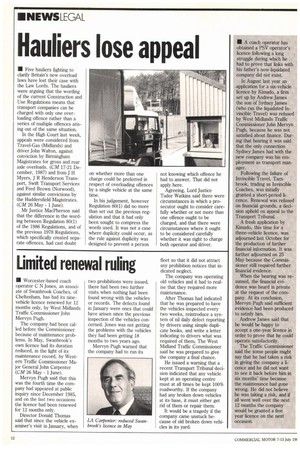Hauliers lose appeal
Page 10

If you've noticed an error in this article please click here to report it so we can fix it.
• Five hauliers fighting to clarify Britain's new overload laws have lost their case with the Law Lords. The hauliers were arguing that the wording of the current Construction and Use Regulations means that transport companies can be charged with only one overloading offence rather than a series of multiple offences arising out of the same situation.
In the High Court last week, appeals were considered from Travel-Gas (Midlands) and driver John Walton, against conviction by Birmingham Magistrates for gross and rear axle overloads. (CM 17-21 December, 1987) and from J H Myers, J R Henderson Transport, Swift Transport Services and Fred Brown (Norwood), against similar convictions by the Huddersfield Magistrates. (CM 26 May 1 June).
Mr Justice MacPherson said that the difference in the wording between Regulation 80(1) of the 1986 Regulations, and of the previous 1978 Regulations, which specifically created separate offences, had cast doubt on whether more than one charge could be preferred in respect of overloading offences by a single vehicle at the same time.
In his judgement, however Regulation 80(1) did no more than set out the previous regulation and that it had only been sought to compress the words used. It was not a case where duplicity could occur, as the rule against duplicity was designed to prevent a person not knowing which offence he had to answer. That did not apply here.
Agreeing, Lord Justice Tudor Watkins said there were circumstances in which a prosecutor ought to consider carefully whether or not more than one offence ought to be charged, and that there were circumstances where it ought to be considered carefully whether it was right to charge both operator and driver.


















































